riding far blog
Our goal is to raise riders' awareness of the importance of mental and emotional skills in equestrian sport. We help equestrians achieve their personal riding goals.
WE SUPPORT, CHALLENGE AND INSPIRE EQUESTRIANS
We hope you will enjoy our insights in the forms of Casual Conversations, videos and articles aimed at helping the equestrian transform their relationships with their horses. We are passionate about sharing our knowledge, tips, tricks, and experiences.

December 13, 2025
My dog Bugsy caught her first squirrel yesterday.
At first, I was not sure what had happened. She did’t come in when I called, which was unusual. About an hour later she was ready, and when I opened the back door I found a half-eaten carcass lying squarely in the middle of the lawn.
Bugsy was clearly proud of herself.
I have to admit, it was impressive. I have shared my life with ten dogs over the last forty-plus years, and this was the first time one of them actually caught the squirrel they had been chasing. How many dogs spend a lifetime in pursuit, always falling a step or two short of the prize?
Lately, I have been thinking a lot about achievement and about reaching for the brass ring. We live in a world that celebrates champions and honors accomplishment at the highest level. Look no further than the equestrian world and the themes that dominate so many advertising campaigns. Count how many promise a path to greatness.
I did a quick scan of advertising in the equestrian space and found that roughly 90 percent of horse-related ads either explicitly or implicitly allude to or promise a pathway to winning.
“From beginner to winner.”
“Training to win.”
“The winner’s edge.”
“Powering champions.”
The list goes on. I have to assume these messages persist because they work.
We are raised in a culture of competition at almost every level. From the earliest ages, we are introduced to competitive sport. Lead-line classes before children can even hold themselves upright. Soccer at two or three years old (Herd Ball), with coaches holding up giant arrows so toddlers know which direction to run.
We compete for grades, recognition, school acceptances, jobs, leadership roles, money, and, not to forget, power.
I have two other dogs. I wonder if Bugsy caught that squirrel to best Lilly and Tia.
That feels hard to imagine.
I believe Bugsy was responding to something deeper, an authentic drive that fueled her patience, passion, and persistence. A drive that kept her in the hunt for the three years she has been with me and will likely keep her in the hunt for years to come.
What would it be like if we fueled our children’s passions rather than setting them up from the very beginning for judgment, competition, and comparison?
What would our relationship with horses look like if it were grounded in that same passion for discovery rather than a constant jockeying for blue ribbons or personal and professional validation?
I wonder what we might accomplish. ~ Paul
#PsychSaturday #RidingFar #PurposeOverPerformance #IntrinsicMotivation
#BeyondWinning #TheLongGame #HorseHumanConnection #MindsetMatters
#PassionNotPressure #RethinkingSuccess #AuthenticDrive #LearningJourney
#EquestrianLife #HumanDevelopment #CuriosityOverCompetition
Read More
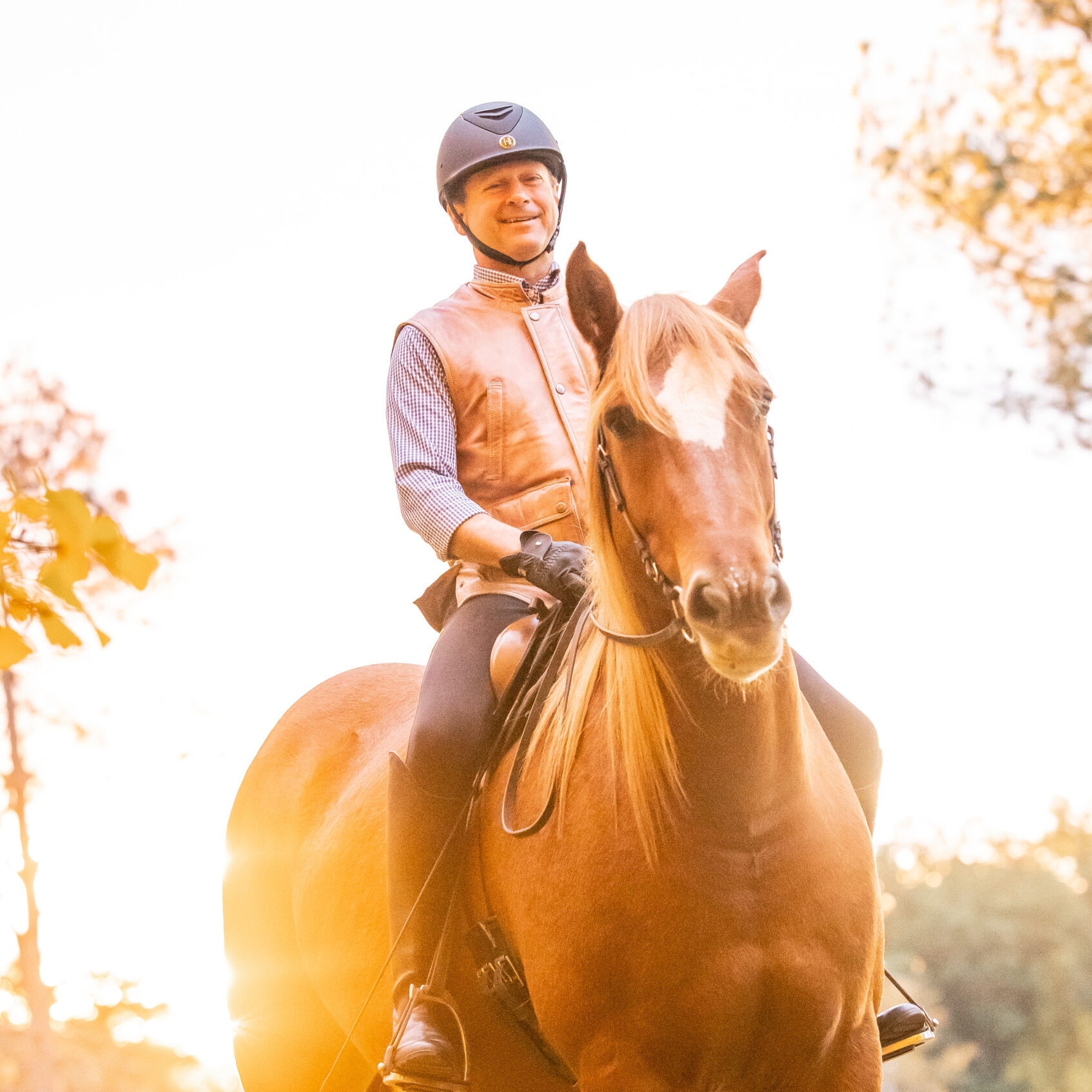
A story crossed my Facebook feed this morning from The Plaid Horse Blog. It was a heartbreaking piece by Jamie Sindell about her daughter’s devastating experience with a show barn and the difficult choices she faced as a mother trying to protect her children from toxicity in the sport.
As a Sport Psychologist, I have worked with countless families, children, and teens who have lived through similar experiences. My heart breaks each time I hear that familiar story. The pride of being chosen as special, the warmth and joy of having one’s ability recognized, and the promise of opportunity often erode into confidence crushing coaching. The details change, yet the core is often the same; shaming, character attacks, pressure tactics, and guilt induction. Sometimes these behaviors appear in the disguise of motivation. Other times there is no disguise at all.
The universal reaction from people who genuinely love the sport is outrage, and rightfully so. There are calls for protections, stronger oversight from organizations such as USEF and SafeSport, and more rigorous instructor certifications. These legislative solutions matter, yet it is equally important to recognize that these painful stories are not tied to one discipline or corner of equestrian sport.
They are a human problem. They are rooted in cultural inertia and destructive beliefs that have been carried forward not only in equestrian sport but across athletics as a whole. In truth, they reach even farther. They show up in our politics, our businesses, our schools, and often in the intimate spaces of family life and parenting.
I have seen shadows of these toxic coaching and motivational strategies in nearly every part of our world. I have seen them even in the dark corners of institutions that aspire to be beacons of light in the world. At times I have felt them in my own heart. Like so many of us, I was raised in a world that celebrated these destructive methods under the guise of mental toughness and competitive spirit.
If you have worked with me for any meaningful length of time, you have heard me say that change is an additive process. Change in the equestrian world is no different. We will not transform our sport by trying to eliminate the problem alone, whether through legislation or any other method. We need to focus on what we will do instead. We need to champion the values, attitudes, and behaviors we want to see in our community and then challenge ourselves to live those values in every interaction.
Let us create education for coaches that offers truly effective ways to build confidence and support the psychological and emotional wellness of both riders and horses, alongside the technical skills of each discipline. Let us celebrate the coaches and trainers who lift their riders and horses up. And let us help parents learn how to support their young equestrians and become more discerning consumers. Through these efforts, and many others, we can shift the culture from toxic to nurturing.
I deeply believe that the most effective path to change lies in identifying and focusing on what we want rather than what we do not want. When we flood the equestrian world with positive, value based strategies, healthy behaviors, and supportive relationships, we illuminate the dark corners of our industry and leave less and less space for toxicity to take hold. ~Paul
PC – Erin Gilmore Photography
#RidingFar #PsychSaturday #EquestrianCommunity #SportPsychology #EquestrianWellness #HealthySportCulture #StopToxicCoaching #PositiveCoaching #RiderMentalHealth #BarnCulture #HorseSport #RiderWellbeing #EquestrianLife #EquestrianParents #YouthSports #ProtectOurKids #SafeSport #RiderConfidence #SupportYoungAthletes #ChangeTheCulture #LeadWithValues #BuildNotBreak #MentalWellnessMatters #CommunityOverCompetition #KindnessInSport #EquestriansForChange #RideKind #EquestrianAdvocacy #HorseWorld #ThePlaidHorse
December 7, 2025
Read more
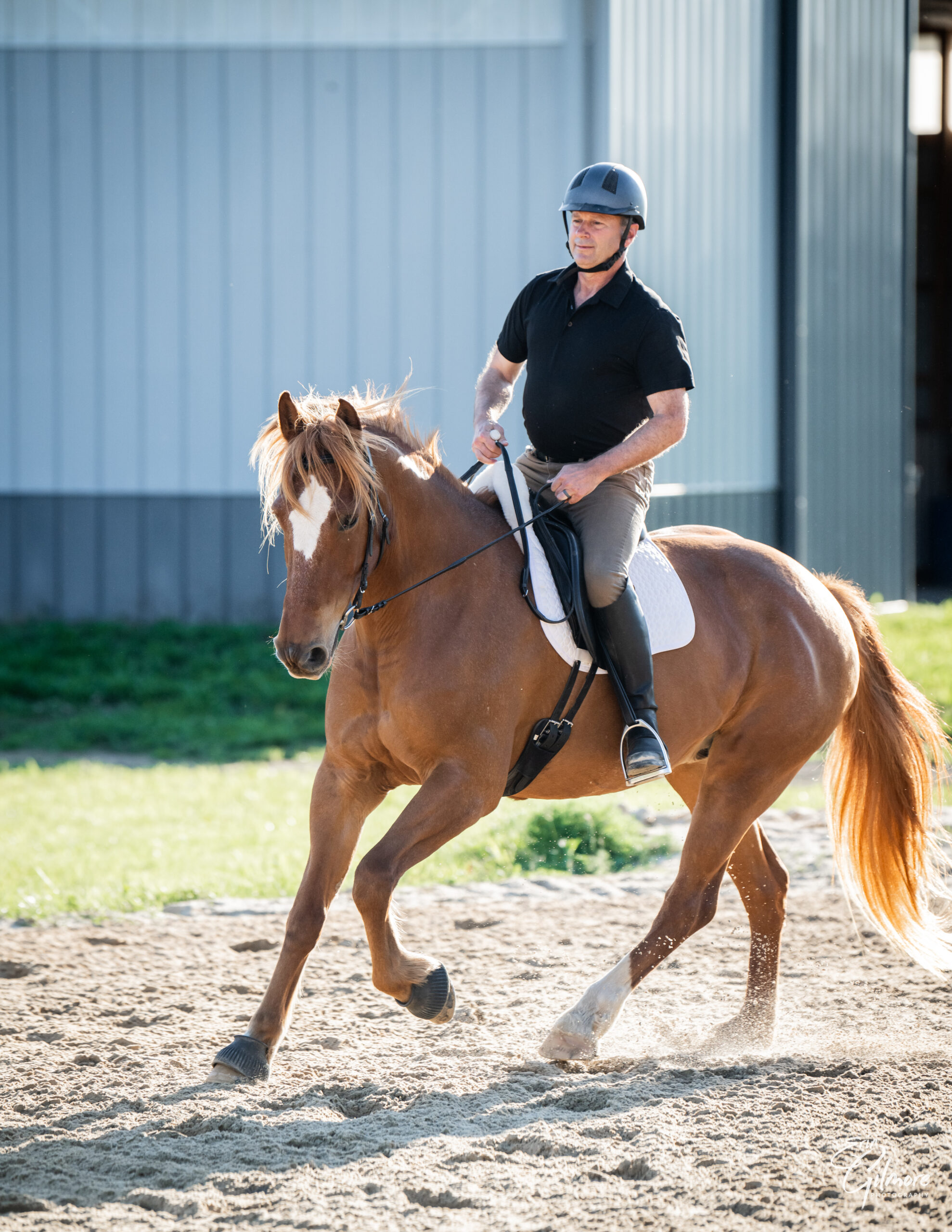
November 29, 2025
I was raised in the Catholic Church. In fact, I am the product of twenty six years of formal Catholic education and spent six years of my young life as a monk in the Congregation of Christian Brothers. It has been a long time since I actively participated in a church community, but this season of gratitude has me reflecting on how those early experiences shaped me in steady, positive ways.
My deepest gratitude is for a simple yet powerful idea. The idea that the spirit or intention behind a practice, ritual, law, guideline, or prescription should matter more than living “the letter of the law.” This is not to say the “law” does not matter. Shared and agreed upon practices create a sense of community and give us a framework for living out shared values. But what happens when the practice becomes more important than the value it was meant to express, when the practices become performative?
I think this simple idea fuels my curiosity. Long ago I realized that core values can be expressed in countless ways. Each embodiment of a value carries its own shape, its own flavor, its own contribution to our understanding of what that value really means.
My lifelong search, whether in psychology or horsemanship, has always been for the common threads woven through different perspectives and traditions. I am wary of disciples of any approach, whether it is a religion, a psychological theory, or a school of horsemanship, who cling rigidly to their method as the only way.
So today I am challenging myself to reconnect with my values. When I notice my behaviors or choices drifting into the performative, I will return to the quiet question beneath it all. What is the spirit I am trying to honor? And then I will live from that place with more courage, more clarity, and more truth than performance could ever offer. ~Paul
#RidingFar #PsychSaturday #ValuesDriven #BeyondPerformative #AuthenticLiving #InnerWork #PsychologyInPractice #HorsesAndHumans #HorsemanshipJourney #SpiritOverPerformance #StayCurious #SelfReflection #IntentionMatters
Read More
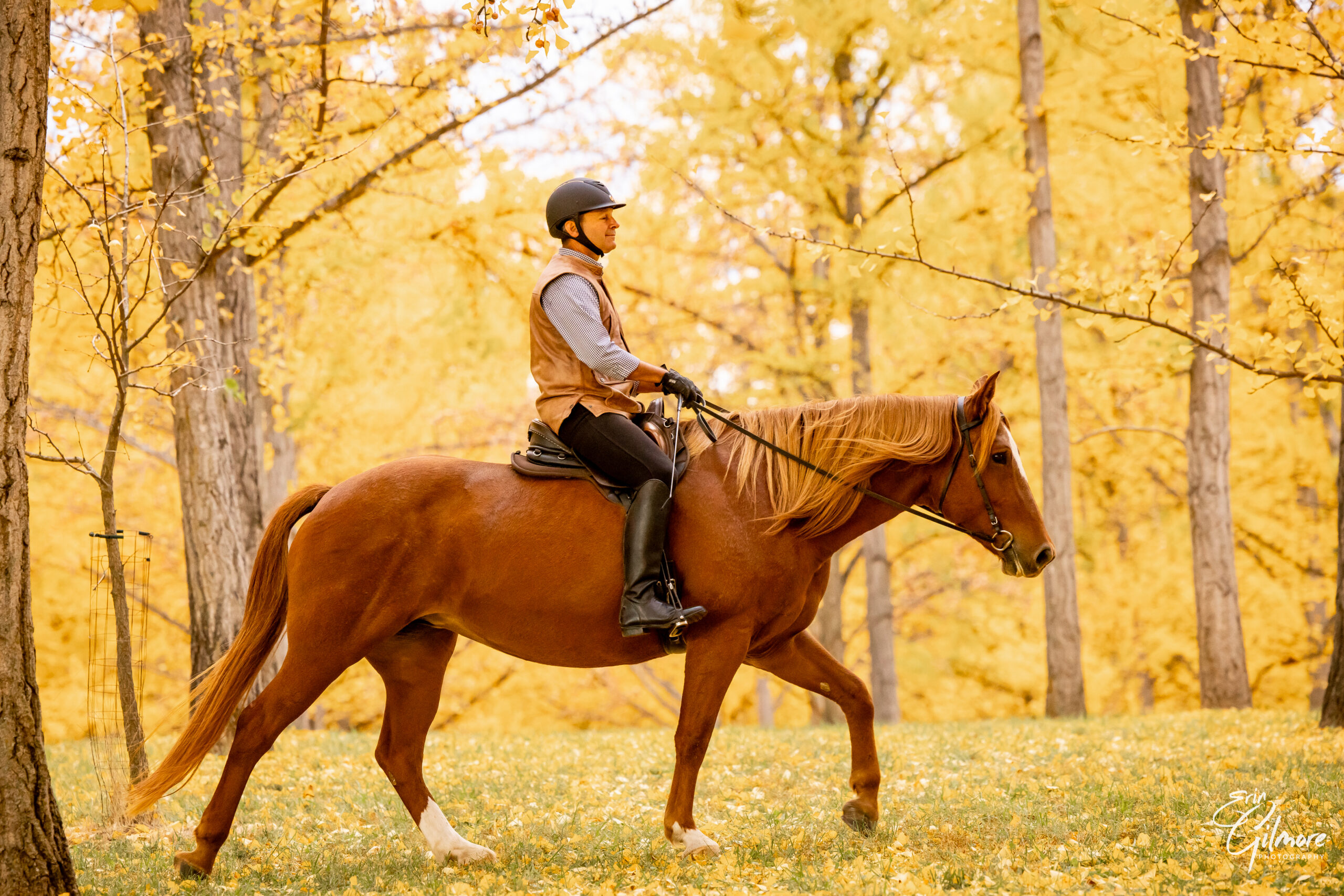
Psych Saturday: Time
I remember being eleven or twelve, counting down the days to summer vacation. Those eight to ten weeks felt like a joyful eternity, time to ride, fish, play, and be with friends and family.
I remember my early thirties, just after finishing grad school, when life stretched out like a boundless horizon. Time felt abundant then. There was room to dream, to build, to become whoever I wanted to be. I never questioned whether there would be enough time. It felt infinite.
And then I woke up this morning, on the first day of my 64th year on this great blue marble hurtling once again around the sun, and something felt different. I am acutely aware now that my time is limited. Limited time to learn and grow. Limited time to connect, share, and teach. Limited time to play and celebrate with friends and loved ones.
I am sure the cadence of time has not changed. The clock has not sped up. And yet, somehow, it feels different. It slips by more quickly. There seems to be less of it.
I could focus on the downside of that realization, on the shrinking runway. I could despair about how little time I may have left or judge myself for what I did not accomplish in the first 63 years. I could linger in regret over time wasted or piddled away on nonsense.
But this morning, I am drawn instead to gratitude.
Gratitude for the life I have lived, the work I have done, and the relationships that anchor me. Gratitude for each moment, each week, day, hour, and minute. Holding every sliver of time as something precious.
And I find myself wondering: What would it be like to live each day this way, to treat every moment as a gift and not a guarantee?
Will you join me? ~Paul
#RidingFar #PsychSaturday #MindfulAging #TimeAndMeaning #GratitudePractice #LifeReflections #GrowingOlder #MindfulnessJourney #MentalHealthMatters #WisdomInAging #CherishTheMoment #PresenceOverPerfection #IntentionalLiving #GratefulHeart #LifeOnPurpose
November 22, 2025
Read more
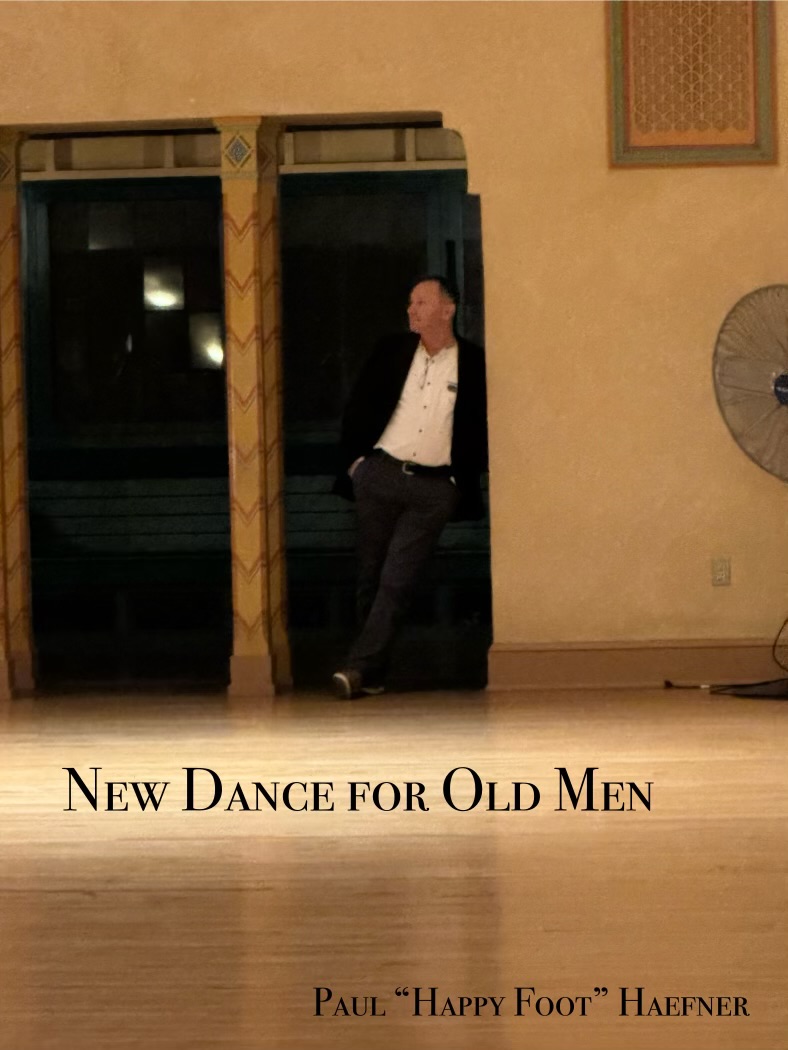
November 15, 2025
This weekend I’m heading to the Stardust Slow Balboa Weekend, a full immersion into slow balboa with classes, social dances, and even a competition.
“What is Slow Balboa?” you might ask.
Excellent question. I’ve been asking it too.
The funny thing is that everyone I ask has a slightly different answer. Here is what I do know: it is a partner dance, it is related to swing, and I am going to spend the entire weekend discovering what it feels like from the inside out.
We talk a lot about beginner’s mind, the idea of approaching a new skill with curiosity and wonder. It makes sense that we focus on the mind. If you are anything like me, it is your thoughts that get loud when you are learning something new. My inner critic is particularly enthusiastic. It loves those moments when I stumble or fall short and is quick to offer commentary I never asked for.
On good days, I can wrangle those thoughts by sheer force of will and redirect myself back to learning. But recently I have realized something important. As much as my thinking matters, it is my heart that fuels me.
A beginner’s heart, full of joy, eagerness, excitement, and possibility, gives us the energy to learn, to seek, and to keep going. It quiets the inner critic far better than logic ever could.
So this weekend I will be leaning into my own beginner’s heart as I explore Slow Balboa, openly, eagerly, a little awkwardly, and with the same curiosity I bring to the barn.
If you are learning something new, whether in a lesson, a clinic, or a quiet moment of practice on your own, I hope you find your beginner’s heart too. It is a wonderful companion on the journey. ~Paul
#RidingFar #PsychSaturday #BeginnersHeart #BeginnersMind #LearningJourney #SlowBalboa #SwingDanceCommunity #CuriosityOverFear #GrowthMindset #JoyInLearning #TrySomethingNew #AdultLearners #PracticeWithHeart #EmbraceTheJourney #InnerCritic #KeepLearning
Read More

Have you ever read about something that grabs your attention, and suddenly everything you see, every interaction you have, runs through that new filter? That’s been my life for the past two weeks as I prepare for our free webinar later this month on Boundaries in the Barn.
One thing that makes me chuckle is realizing that my obsession with boundaries, in every interaction I have with both horses and humans, might actually be a boundary concern for me. After all, I’m the one fixated on it. Seeing everything through one lens could easily affect my ability to recognize others as separate individuals with their own needs, perspectives, and agendas. My agenda isn’t theirs.
That said, diving into a topic and challenging yourself to explore something new is a wonderful tool for growth. There’s real value in letting your curiosity take over, even to the point of obsession, and allowing it to change how you see the world.
I remember as a young man becoming fascinated by ragtime guitar. Stefan Grossman, a ragtime guitar guru, had published a book of tunes adapted for guitar, and I dove in headfirst. Few things have ever captured my attention with such intensity. Practice became a joy. And before long, I noticed that everything I played was filtered through that ragtime rhythm.
The obsession didn’t last forever, but the effect did. My overall playing improved, and even years later, I’d catch my fingers slipping into a syncopation or picking pattern from The Salty Dog Rag or Hard Hearted Hannah.
So my encouragement for you today is this: dive deep. Learn something new. Try on a new pair of “glasses” and look at the world through that lens for a while. Then pay attention to how you grow and change as that experience becomes part of you. My guess, as always, is that our horses will appreciate it. ~Paul
PC – Erin Gilmore Photography Glasses by AI
#RidingFar #PsychSaturday #BoundariesInTheBarn #CuriosityAndGrowth #EquineConnection #LearnSomethingNew #MindfulHorsemanship #PersonalGrowth #HorsePsychology
November 8, 2025
Read more
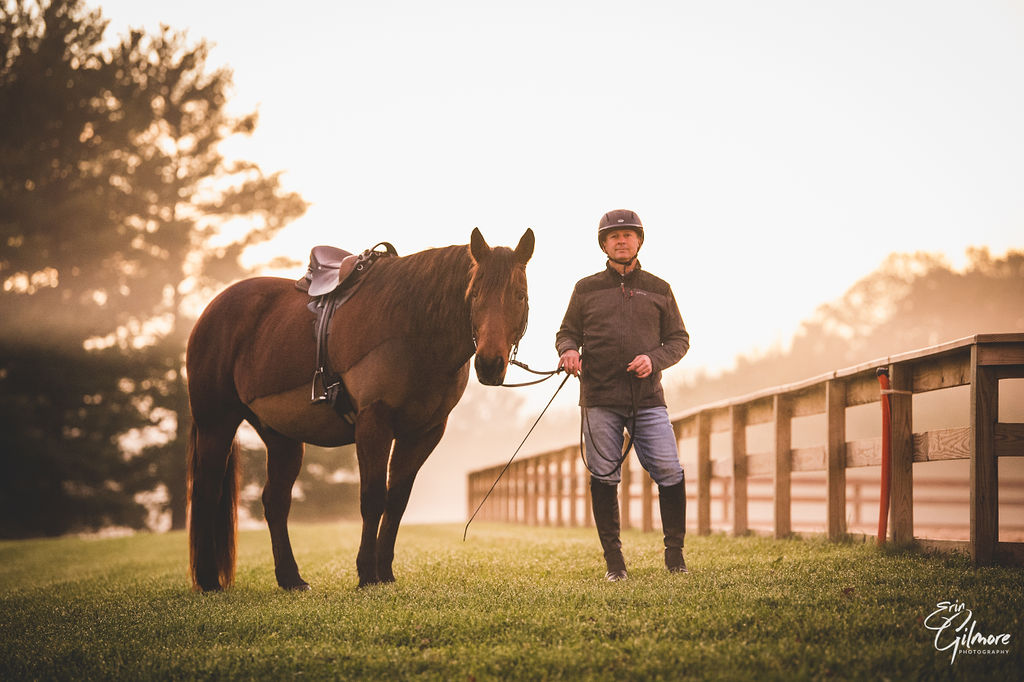
November 1, 2025
In preparation for our next webinar, I started reading a new book on boundaries. There are hundreds of books on the subject, and I wasn’t sure where to begin or what to look for in my next read. What I did know was that I didn’t want another book offering advice on how and when to say “no.” It’s not that learning to say no isn’t important, but setting limits like that naturally grows from having healthy boundaries. I wanted to understand how to nurture those boundaries, not just teach people how to act as if they already had them.
As I scanned through titles, one stood out because of its subtitle: “Where You End and I Begin.” It captured the idea of boundaries in a way that, for me, inspired both curiosity and wonder. Physically, it is easy to grasp the boundary between you and me. Yet in almost every other way, whether emotionally, psychologically, spiritually, or energetically, it becomes profoundly difficult to define.
One way we recognize a boundary is through conflict. Let’s call these the “no’s” in a relationship. These inevitable conflicts arise from the simple fact of difference: different ideas, different interests, different strategies to meet our needs.
In the world of horses, there has been growing attention to seeing and respecting the “no.” Noticing these moments of conflict is essential, but is simply honoring the “no” enough to develop healthy boundaries? To me, it seems like the easy way out to simply withdraw, separate, or put up a wall whenever we recognize a “no.”
Boundaries require both a you and a me. They are dynamic and come alive in interaction. All the rich qualities of relationship, such as respect, honor, trust, dignity, love, care, and concern, emerge from the search for the “yes,” not from merely respecting the “no.”
There are parts of the horse world that are focused entirely on the “no” these days. It is an understandable correction for all the times when the boundary between human and horse has been bulldozed by human needs and desires. But we must be careful not to swing too far in the other direction and lose the beauty and magic that exist in the boundary itself.
Saying no, or stopping when we see a no, is easy. Finding a yes is what truly counts, especially if we want to live in healthy relationship with one another and with our horses. Let us seek that energetic, emotional, psychological, spiritual, and dynamic interplay of self and other as we discover a true yes that respects and honors all the beings with whom we share this world.
How have you and your horses found a mutual yes?
~ Paul
#RidingFar #PsychSaturday #Horsemanship #EquineConnection #RelationalHorsemanship #ConnectionOverControl #HorseHumanConnection #TrustAndRespect #MindfulHorsemanship #EquineWisdom #HorsesAsTeachers #AuthenticConnection #BoundariesWithHorses #FindingTheYes
Read More
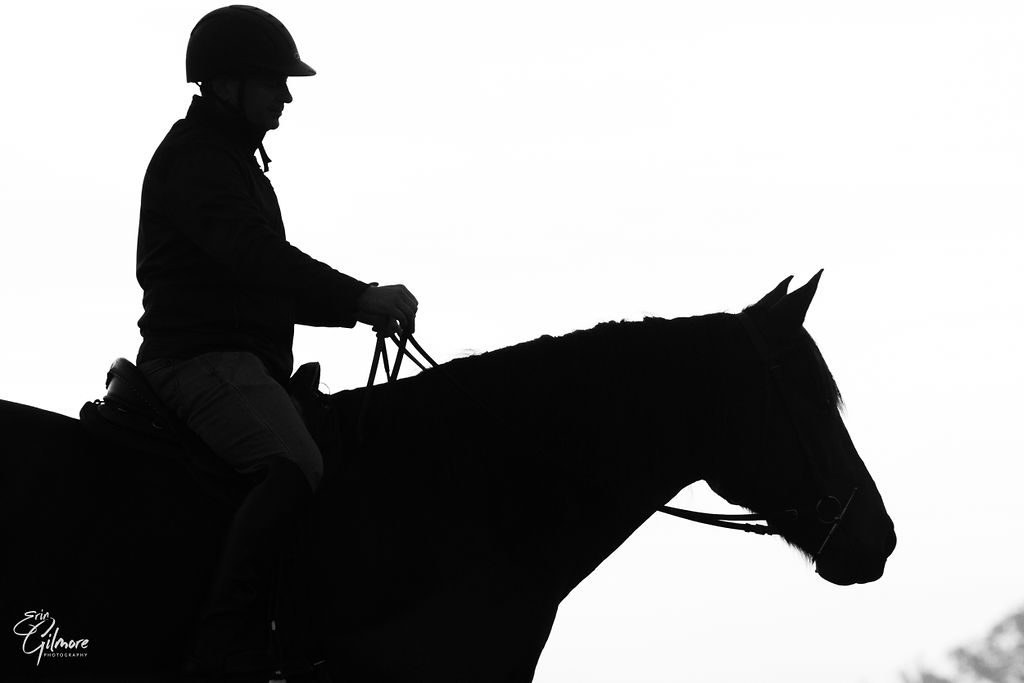
I love words. The way they capture subtlety in meaning. The way they nuance understanding, much like how the golden light of morning creates magic in a photograph.
As amazing as words are, their greatest power and influence shine when they join together, bringing meaning to life through the complexities and richness of language.
Language, for all its beauty, is often predictable. I’m no linguist, and in fact, you might even call me language-poor, but I do know that every language has its rules and conventions. Each has its own rhythm, its own routine. That predictability can make it dull and lifeless. Yet somehow, under the same structure, it can also be alive, fascinating, and inviting.
So what makes the difference? What are the magic ingredients that lift the ordinary into something inspired, transforming a routine from lifeless pattern into living expression?
In music, we talk about rhythm, the pattern of sounds and silences, the heartbeat of timing and duration. We also talk about cadence, the flow and feel of that rhythm, its rate of movement, and the rise and fall that signal beginnings and endings.
I think about my horse, Revel. People have called him lazy, or as one person put it, “profoundly efficient.” I used to tell everyone he hated ring work, that he would shut down with the usual routines. I believed that story, until recently.
What I’ve come to realize is that routine isn’t the problem. Routine is simply a framework, one that can sink into drudgery or rise to the level of inspiration. The difference might just be in how we play with rhythm and cadence.
Revel and I are exploring that space between repetition and revelation. We’ll let you know what we discover.
~ Paul
#PsychSaturday #RidingFar #MindfulHorsemanship #RhythmAndCadence #HorseWisdom #EquestrianLife #RidingWithHeart #LearningFromHorses #EquineInsight #InspiredRiding #HorseConnection #RevelAndPaul #MindfulRider #HorseJourney
October 25, 2025
Read more
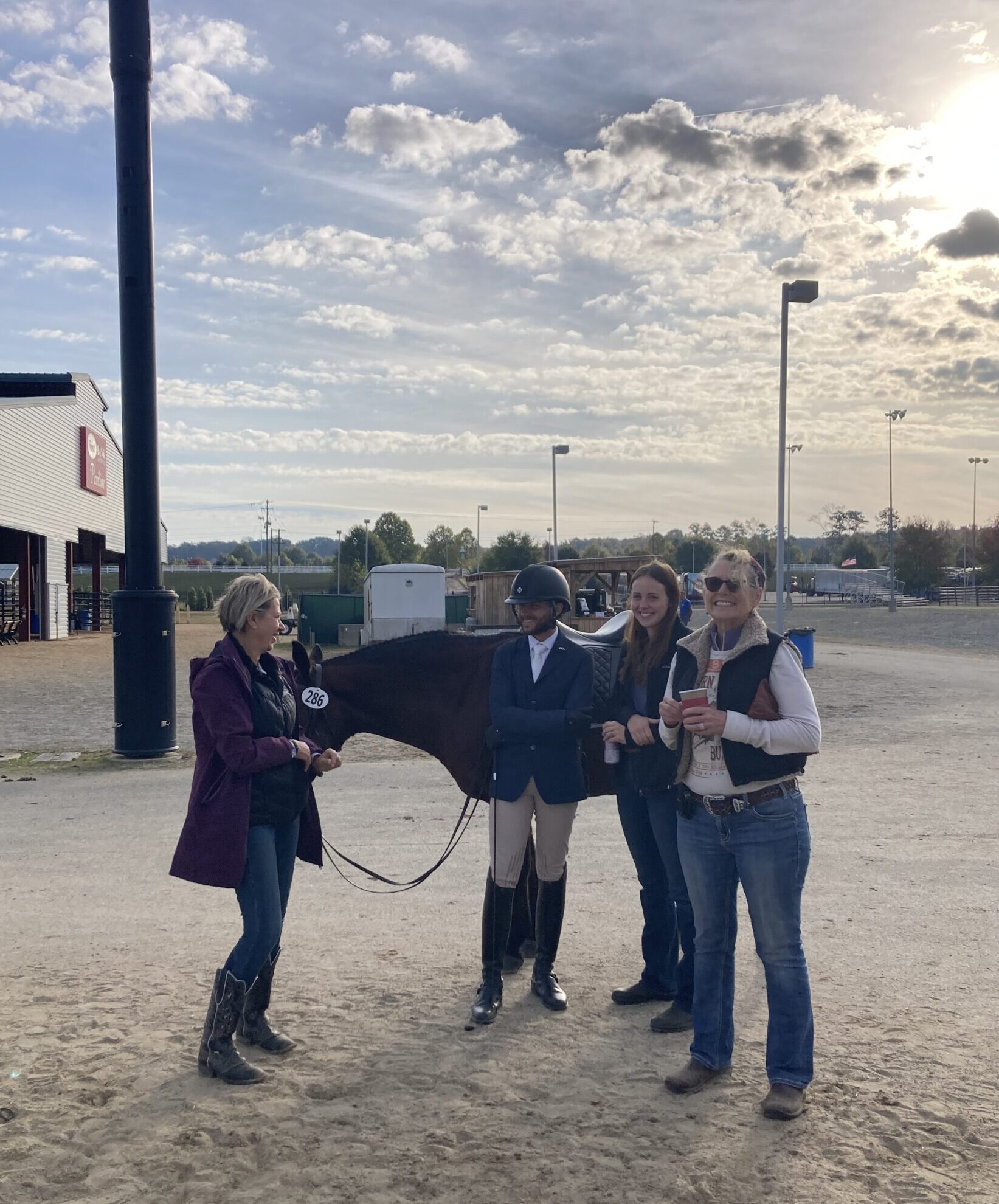
October 19, 2025
Some things are small. Some things are so small that it’s hard to believe they could make a meaningful difference. Would you notice if something moved 1/1000th of an inch? 1/100th? Would you see if I was 1/1000th of a second faster or slower than you? And even if we did notice, would it really matter?
Justin and Kola were competing in the USA Working Equitation Regional Finals this weekend. The first day, Dressage, Justin tied for first with another rider. The tie was broken by totaling the collective marks, and Justin placed second. The second day, after the Ease of Handling phase—second again. Until…
In the process of checking score sheets, a small addition error was found. When the dust settled, Justin dropped one placing. He trailed second place by… yes… 1/1000th of a point.
For Justin and Kola, that 1/1000th meant some emotional ups and downs, a bit of pressure, and the challenge of channeling that tension into their Speed round. In the end, it didn’t change much. They still rode beautifully. They still came home champions of their division.
But it got me thinking about small differences and the meaning we attach to them.
Competition, by design, magnifies differences. It’s a system of measurement, of ranking, of deciding who wins and who loses. That’s not inherently bad; it can drive growth, focus, and excellence. But when our identity starts to hinge on where we land in that ranking, when our self-worth depends on the data, we step into more dangerous psychological territory.
The idea that who I am is what I achieve, performance identity, is a shaky foundation. In equestrian sport, it’s especially seductive. We invest deeply: time, money, energy, heart. The partnership with a horse makes the stakes feel even more personal. When things go well, we feel validated. When they don’t, we question everything.
When our sense of self depends on the scoreboard, that 1/1000th of a point can feel like a verdict. Not just about performance, but about worth. It narrows our lens until all we can see is how close we came to being “better.” And that steals joy, presence, and perspective from the very thing we love.
The truth is, most of life happens in the space beyond measurement. In the quiet rides, the small moments of connection, the unseen effort, and perhaps most importantly the supportive community that surrounds us . Those things don’t show up on a score sheet, but they are the true substance of growth.
So maybe the challenge isn’t to erase our competitive drive, but to hold it more lightly. To remember that 1/1000th of a point doesn’t define us, it just reminds us how close the margins are between doing and being, between striving and enough.
Justin and Kola didn’t need a perfect score to prove anything. They already had what mattered most: partnership, resilience, and a story that will be retold among friends.
And maybe that’s the point…
Sometimes, the smallest differences are there to remind us of what can’t be measured at all.
~ Paul
#PsychSaturday #PerformancePsychology #EquestrianMindset #1of1000 #GrowthMindset #MindfulCompetition #HorseAndHuman #BeyondTheRibbon #SmallThingsBigMeaning #IdentityAndPerformance #PurposeDrivenPerformance #EmotionalResilience
Read More
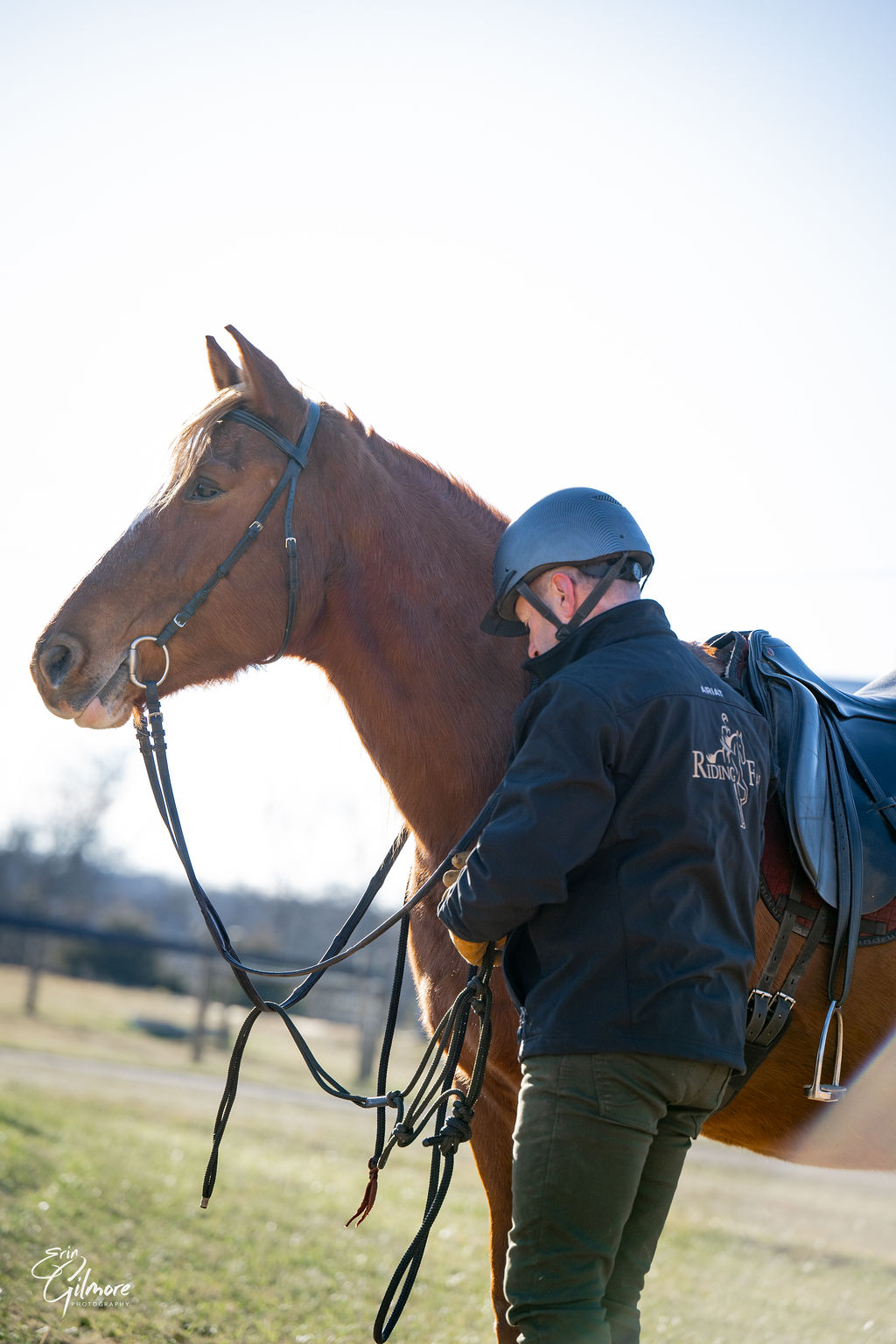
I have no idea where the old saying “When the going gets tough, the tough get going” originated. But I do know it reflects the rugged individualism and fierce self-reliance that seem to be woven into the American ethic. In the horse world, that attitude often shows up as “don’t be a wimp” or “cowboy up.” Unfortunately, it doesn’t stop there. It also influences how we treat our horses, and sometimes, how we treat the people around us.
Over my 25 years of working with riders and more than 38 years as a psychotherapist, I have seen the damage that mindset can cause when taken too far. I have also had the privilege of accompanying many people on their journey back from it. Together, we have walked the path of healing, courage, and rediscovery, finding strength not in toughness alone, but in connection, compassion, and care.
I am all for resilience. I believe in grit, in sustained effort, and in the commitment it takes to do something truly great. Growth often asks for discomfort, and sometimes even sacrifice. But what I have never understood is our contempt for vulnerability, our tendency to look down on fear, or to see tears as weakness. Those feelings are not signs of failure. They are the raw materials of courage.
More than ever, I believe in the power of connection. Every day, I see proof that amazing things happen when people and horses join together. I celebrate the growing movement toward relational horsemanship. I celebrate our increasing understanding that our strength as human beings is grounded in our relationships with others.
So now, when I hear the old saying, “When the going gets tough…” I find myself finishing it differently.
How would you finish it? ~ Paul
#PsychSaturday #WhenTheGoingGetsTough #CourageAndConnection #HealingThroughConnection #VulnerabilityIsStrength #RelationalHorsemanship #MindfulHorsemanship #HorseAndHumanConnection #ResilienceOverRigidity #AuthenticStrength #SelfCompassion #ThePowerOfTogether #MindfulLiving #HeartCenteredLife #GentleStrength #WisdomInTheArena #RidingThroughLife
October 11, 2025